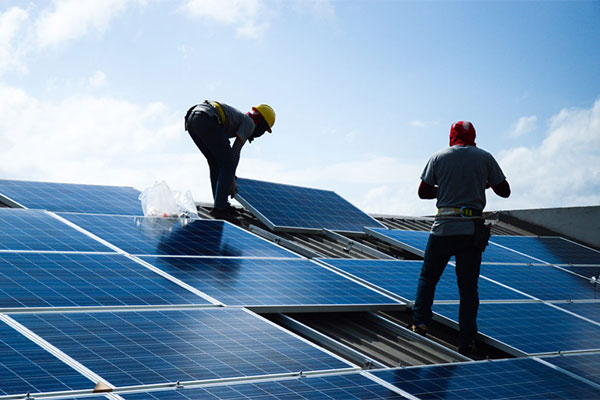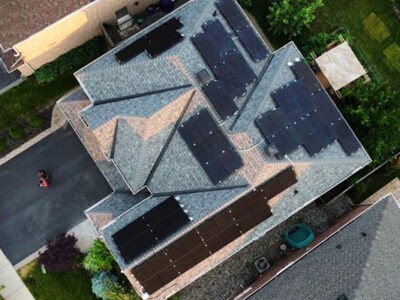- As the Canada Greener Homes Grant program nears its conclusion, the energy audit sector faces potential widespread job losses.
- Industry experts and organizations like Green Communities Canada and Efficiency Canada are urging the government for clarity, extended support, and a focus on deep retrofits.
- The government's announcement of the next phase of the program offers hope for continued momentum in energy-efficient home upgrades and solar installations.
As the federal government’s Canada Greener Homes Grant program approaches its conclusion, there is mounting concern in the energy audit sector about the possibility of widespread job losses.
This program, which offers up to $5,000 for energy efficiency upgrades such as insulation, windows, and heat pumps, is expected to stop accepting new applications by the end of March, though the exact timeline is still uncertain.
Program Popularity and the Implications of Funding Depletion
The program’s unexpected popularity has led to concerns that it may run out of funds sooner than planned, reminiscent of the ecoEnergy home retrofit program’s similar situation in 2012. This has resulted in a surge in applications, temporarily boosting the home energy audit industry with increased demand.

Brian McKay is the president of Aztek Solar in Lower Sackville, N.S. He estimates around 90 per cent of business is coming in through the Canada Greener Homes loan and grant programs. (Brian McKay via CBC Nova Scotia)
However, officials have warned that this boom may lead to the program’s premature end, sparking calls for clarity and a commitment to long-term policy to prevent sector disruption.
A recent survey highlighted that funding limits are preventing homeowners from undertaking more extensive energy efficiency improvements. Despite the program’s impressive budget of $2.6 billion over seven years, it has been noted that only a minor fraction of the retrofit projects qualify as deep retrofits, which are essential for significant energy and greenhouse gas savings.
Demand for Clear Guidance and Sustained Support
Green Communities Canada advocates for a focus on deep retrofits, stressing the need for a comprehensive plan that includes building envelope, mechanical systems, and renewable energy sources. The current pace of retrofits, however, suggests it could take over a century to upgrade the 11 million Canadian homes needing improvements, underscoring the urgency for accelerated action.
The looming conclusion of the Canada Greener Homes program has raised fears of significant job losses among energy assessors and related sectors, including window installation, HVAC services, and solar panel companies. Industry experts are calling on the government to offer clear direction and possibly extend the program to prevent instability in the market.
Initially intended to last until March 31, 2027, the Canada Greener Homes Initiative is now at risk of early termination due to its success and budget concerns. As the industry awaits official decisions, there’s a collective call for strategic government intervention to keep up the momentum in energy efficiency improvements.
Efficiency Canada highlights the importance of ongoing support for energy retrofits to meet climate targets. The organization is advocating for continuous funding in the next budget, with a focus on helping low-to-moderate-income Canadians overcome the initial cost barriers.
Haley, Director of Policy Research at Efficiency Canada, emphasizes the importance of a strategic, long-term approach to ensure the program’s evolution, making energy retrofits more affordable and accessible. “Abruptly ending the grants will make it more difficult for the government to achieve its goals. We are a long way from net-zero emission buildings.”
Haley advises homeowners to leverage existing financial supports, such as the $40,000 interest-free loan, and to seek energy audits proactively to identify improvement areas and enhance energy efficiency. This advice is echoed by recommendations from Green Communities Canada and Efficiency Canada, which stress the need for the government to commit to a strategic and sustained investment in comprehensive retrofits beyond mere surface-level enhancements.
Anticipating the Next Phase of the Greener Homes Initiative
As the end of the program nears, Canadians are increasingly worried about the future availability of funding for energy-efficient upgrades and solar energy installations. Fortunately, the government has announced the next phase of the program, offering some relief.

Honourable Ahmed Hussen, Minister of Housing and Diversity and Inclusion announced the launch of the first phase of the new Canada Greener Homes Loan for homeowners, which will provide interest-free loans of up to $40,000 per household.
Despite the Greener Homes program’s success in driving retrofit applications, it has struggled to fully realize the potential of deep retrofits—key to achieving significant energy and greenhouse gas reductions. Thus, the call for increased funding is crucial for the continued success of energy efficiency and solar energy initiatives nationwide.
“The massive popularity of the Canada Greener Homes Grant’s first phase demonstrates Canadians’ desire for affordable, comfortable, and sustainable homes,” said Jonathan Wilkinson, Minister of Energy and Natural Resources. “With hundreds of thousands of Canadians retrofitting their homes with support from the Government of Canada, we are preparing the next phase of the Canada Greener Homes Initiative to provide more accessible support to families across the country who need it most, while continuing our climate change actions.”
The next phase promises additional support to complement existing federal initiatives for home upgrades and bill reduction. This includes the Canada Greener Homes Loan, which offers interest-free loans of up to $40,000 for home energy improvements, and the Oil to Heat Pump Affordability (OHPA) program, providing grants of up to $15,000.
These enhancements aim to support Canadians in transitioning to heat pumps, potentially saving them between $1,500 to $4,700 annually on energy bills. The initiative’s continued commitment is a step towards meeting decarbonization goals and accelerating progress toward more sustainable and energy-efficient homes across Canada.














Comments